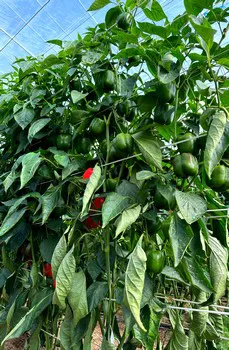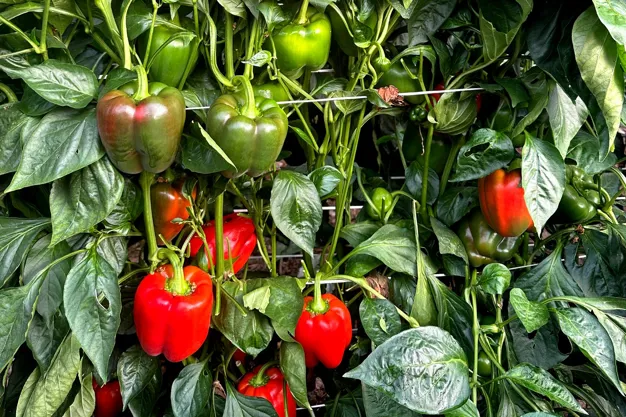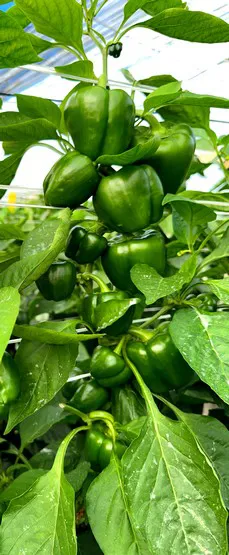Bell pepper sizes this year are a little smaller than usual due to the heat. "Because of the weather, the crop was sown between two and three weeks later, compared to last year, and the fruit setting has also been delayed because it is still too hot, so the peppers have fallen a bit short in terms of size," said Miguel Molina, from the Almeria-based company Hortindalo, which is specialized in bell pepper cultivation.

"Last season was not good at the start for this same reason, and people have been delaying the start of the plantings, so there are fewer kilos in general. However, the law of supply and demand is allowing the campaign to be quite good for now, with rather good prices."
"Right now, a kilo of red bell peppers, which is the one we grow at Hortindalo, costs around 1 Euro. The price has dropped a little, because last week it stood at 1.30 Euro/kilo, so we hope this trend won't continue in the coming days," said Miguel. "Since there is a lower supply this season, we are noticing that imports from third countries are on the rise."
Compared to the other colors that make up the popular tricolor packs that are popular for the export market, red peppers are the most in demand in the domestic market, where Hortindalo sells its production after harvesting and packing it directly in their greenhouses, sending it directly to customers who want a fresh product of the highest quality, said Miguel.

"We have been producing organically for 8 years, but in the last 3-4 years prices have dropped quite a lot and, in fact, they are very similar to those of conventional products, which have risen. This is making me seriously consider giving up on the organic, because the costs are 40-50% higher than in conventional production, the production is lower, and pests are more difficult to keep under control, and the price difference with non-organic products is minimal."
"As an entrepreneur, I am very sad about having to take this into consideration, because it took us a lot of effort to obtain the organic production certificate, but, unfortunately, I'm afraid I am going to have to give up on it, because it's just not profitable enough," he said.

"In any case, we cannot forget that Almeria's agriculture is, in itself, highly sustainable. We measure at all times the amount of water and fertilizer we use to make the best use of resources; all authorized phytosanitary products are thoroughly tested to ensure that they are healthy for people and environmentally-friendly, and cooperatives generally require that the MRL of vegetables is set at one third of the established limit, which also makes conventional products safer," said Miguel. "Zero residue can be achieved, because we are already very close, but we must bear in mind that with zero residue we are not going to get the same amount of kilos to feed more and more people."
"We are leaders in Almeria in both organic and conventional production. In that sense, I am very proud to be part of one of the most environmentally and health friendly production systems that exist."
 For more information:
For more information:
Hortindalo
Tel.: +34 634 565 609
[email protected]
https://hortindalo.com










